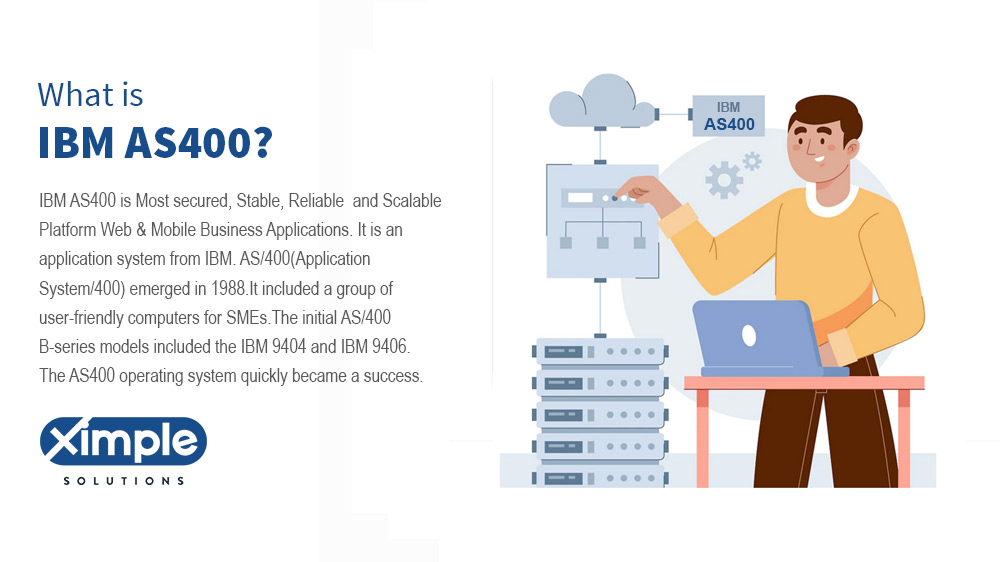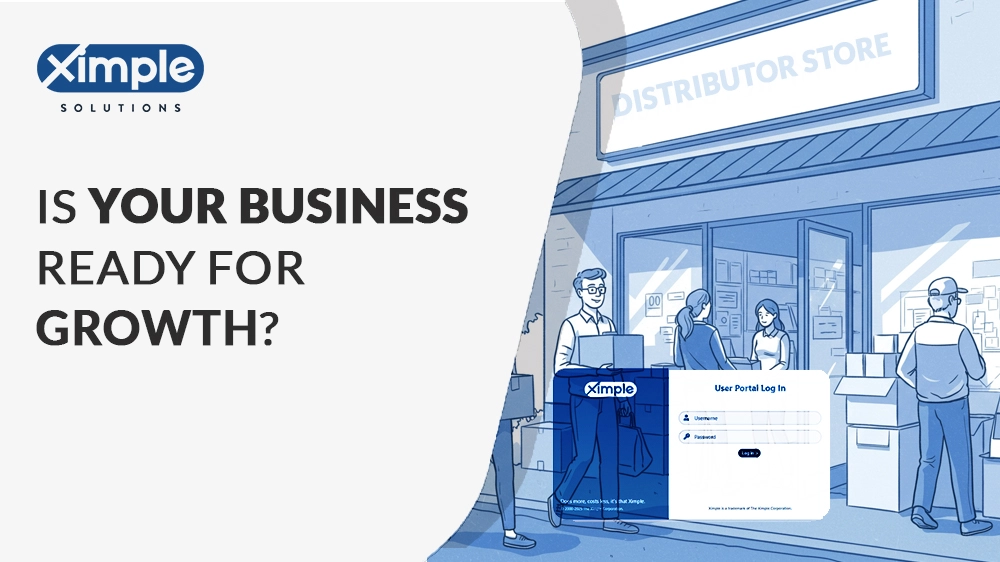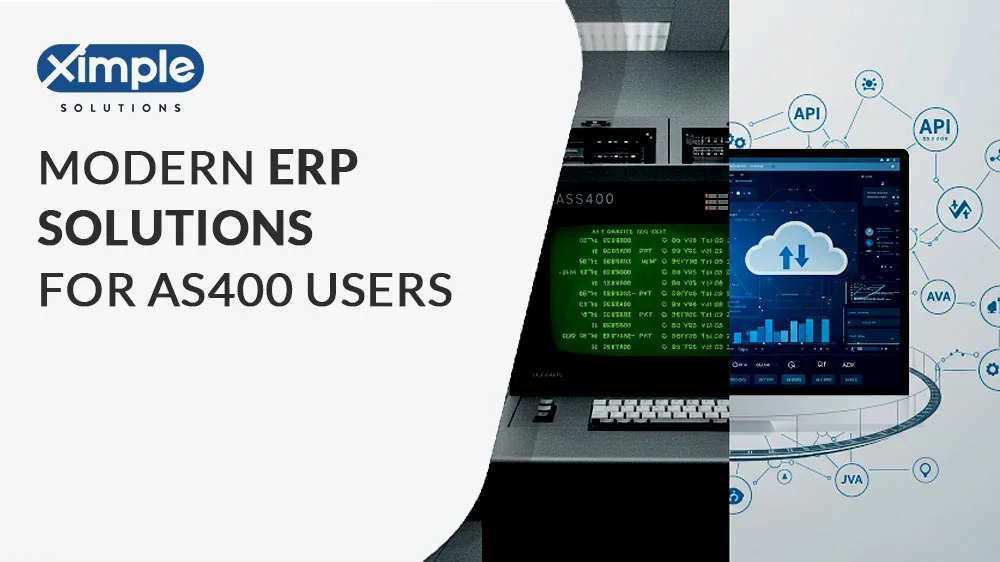ERP and Internet – IoT and ERP
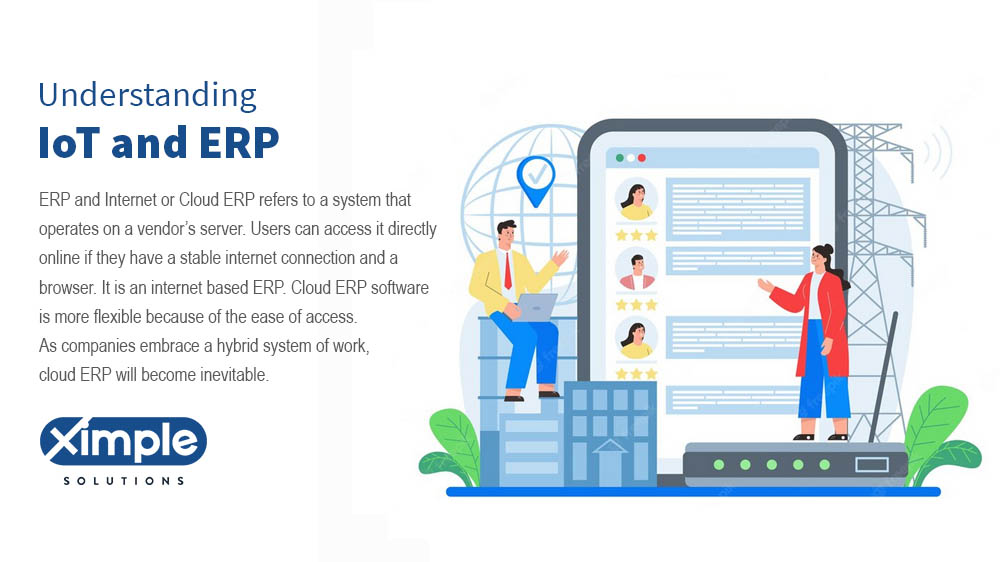
This article is ideal for managers and decision-makers in companies that are considering implementing an Enterprise Resource Planning (ERP) system and those who want to learn more about the integration of ERP with the Internet of Things (IoT). It is also suitable for IT professionals who are involved in the implementation and maintenance of ERP systems and those who want to understand the benefits and challenges of cloud ERP. The article provides an overview of the relationship between ERP and the internet, the benefits of integrating ERP with IoT, the challenges and benefits of cloud ERP, and the selection criteria for choosing an internet-based ERP solution.
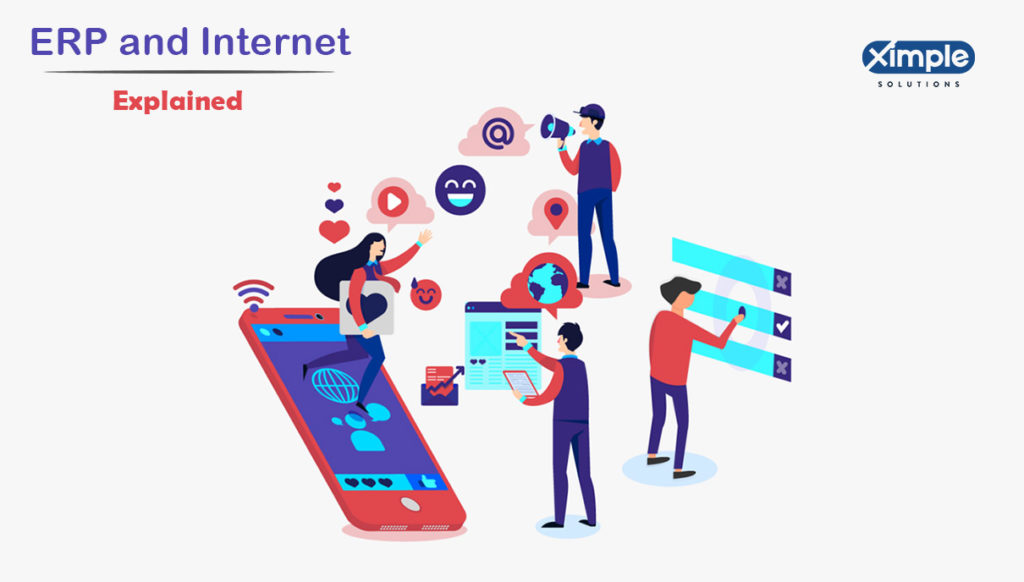
ERP and Internet or Cloud ERP refers to a system that operates on a vendor’s server. Users can access it directly online if they have a stable internet connection and a browser. It is an internet-based ERP. Cloud ERP software is more flexible because of the ease of access. As companies embrace a hybrid system of work, cloud ERP will become inevitable. A hybrid work system includes office and remote work. Hence, remote workers can benefit a lot from ERP and the Internet.
Similar to on-premise ERP solutions, cloud enterprise resource planning systems represent a single source of data. They include several business management modules, allowing managers and other stakeholders to access relevant data in real time. An ERP with internet runs on the cloud and does not attract upfront licensing fees. The vendor provides software as a service (SaaS). Later in this article, you will learn the challenges and benefits of cloud ERP.
Table of Contents
- Internet of Things and ERP
- How Modern ERP integrates using the internet
- What are the benefits of integrating ERP with IoT?
- Benefits of ERP and Internet (Cloud ERP)
- Challenges for ERP and Internet
- Future of Internet ERP with Internet
- Selection criteria for the Internet based ERP
- Types of Internet ERP
Internet of Things and ERP
To understand what the Internet of Things ERP system is all about, it is vital to know the meaning of IoT. So, what is the Internet of Things (IoT) all about? It is a network that contains all kinds of internet-enabled physical devices. Hence, IoT can refer to anything, including tablets, mobile phones, computers, laptops, cars, buildings, household appliances, and more. Internet of Things extends the internet connection possibility beyond computers and smartphones. Now when it comes to how the internet can enhance ERP, there is a vital relationship between the two.
Individual devices within the IoT network will provide unstructured data. The ERP software will then organize, analyze, and display this data in a way that users can understand. Internet of Things continues to grow and the main challenge experts have to deal with is data security. As IoT aims to connect millions of devices to the internet, it creates an opportunity for hackers to enhance their craftiness.

How Modern ERP integrates using the internet
ERP automates workflows, leading to enhanced operations across the industries. The ERP landscape now is complex because of how swiftly the technology is changing. The process of implementing ERP software for large organizations can take about twenty-four months. Between the start and the end of the process, substantial technology changes can occur. It can be challenging to incorporate most of these technologies into the process because that requires money and expertise.
So organizations want to focus on a solution that costs much less and is easy to integrate with the internet. The solution that best suits this description is cloud ERP. The ERP software runs in the vendor’s server at a much lower cost when compared to any on-premise ERP system. Companies using this solution do not require hardware to install the system. They also spend less time implementing a SaaS internet ERP solution.
Again, users of the Internet of Things ERPÂ do not need to worry about power backup or server maintenance because the vendor should take care of that. Concerning the impact of the internet on ERP systems, we can say that IoT may reduce the implementation time. As IoT development improves, it might soon bring down the cost of implementing the ERP. As IoT is a relatively new development, most companies do not trust it.
As earlier hinted, IoT makes data security a major concern. Companies investing in ERP systems do not fully trust data that might come from an IoT network. These organizations have confidential data that could make some hackers millions of money. They aim to avoid any security gaps when implementing their ERP and integrating it with the internet.
Despite the challenge, IoT connectivity can simplify data transmission and allow companies to access data they could previously not find. Cloud ERP software offers scalability so an organization should scale every new IoT device it adds to its network to successfully coordinate internet and ERP software
Apart from the data security and privacy risks it poses, IoT and ERP integration is beneficial for customer-facing and back-facing processes.
What are the benefits of integrating ERP with IoT?
If companies decide to integrate ERP with IoT, they can benefit in the following ways:
- Improved data availability and quality “ The amount of data available to organizations is increasing rapidly now. However, only a few of those willing to collect big data are ready for the challenges of handling it. By integrating ERP and IoT, companies can enhance data availability and quality. They can then use it for better decision-making processes.
- Receive real-time insights “ Continuous data streams arising from IoT devices and sensors are valuable insights for a business. Managers can use these actionable insights to improve their decision-making processes. They can also convert their reactive approach into a proactive one.
- Enhanced operational efficiency “ Automation of various tasks can lead to better operational efficiency. That can happen after the integration of ERP with the internet and WWW. After this, a company can avoid missed deliveries, shortage of stock, and related issues.
- Better forecasting – IoT and ERP integration simplifies forecasting of consumer purchases and usage of a given product. It provides a direct connection between production and consumption. After analyzing huge quantities of IoT data, companies can make better supply chain decisions.
Benefits of ERP and Internet (Cloud ERP)
How can a company benefit from implementing a cloud ERP system? As we said earlier, this software runs on a third-party platform instead of the company’s data center or firewall. An internet-based ERP system is:
- Cost-effective “ A company pays the ERP vendor for the services it uses. After the upfront investment, which is small, they do not incur costs for maintaining and updating software.
- Stability “ A cloud ERP is likely to be more stable because the vendor does everything in its power to keep it running. From constant updates to the removal of technical hitches to ensure uptime, a cloud ERP server is unlikely to disappoint users.
- Mobile accessibility “ Companies who hire remote workers or field workers can benefit a lot from using an internet-based ERP program. Workers can access the software from anywhere using internet-enabled devices.
Challenges for ERP and Internet
Implementers are likely to face some challenges when trying to implement ERP software. These include the following:
- Change management “ When introducing a major change to an organization, managers expect to deal with resistance. Ensuring that company culture is receptive to new ERP solutions is not easy. It is even harder when introducing an Internet of Things ERP system.
- Multiple devices can be hard to manage “ Naturally, IT departments have complex work to do. When a company decides to integrate IoT and ERP, that’s an additional complexity to deal with. Even if the ERP provider runs the software in their server, they do not operate and manage the in-house IT environment. Data integration between the two systems must be impeccable and it is up to the IT workers to achieve this.
- Teams need time to learn “ When it comes to learning a new system such as internet integration technology in ERP, teams need adequate time. They also have to receive sufficient coaching and have tolerance for failure. Without enough financial resources, teams can take longer to learn how the Internet of Things can boost ERP.
Future of Internet ERP with Internet
What does the future hold for Internet ERP? Soon, companies will face compatibility failures due to the continued growth of IoT. They will struggle to meet and maintain IoT device standards, certifications, and system environments. Hence, companies may form partnerships to create ideal ecosystems for endless IoT data streams. The growth of the Internet of Things will trigger the accumulation of big data that will be harder to handle. Hence, it is likely that the future will bring new data processing software to help analyze the bulk data. IoT is hard to trust because of the possibility of causing data security and privacy issues. For that reason, companies will develop robust security solutions to increase data safety and confidentiality.Â
Selection criteria for the Internet-based ERP
When selecting the best cloud ERP, what factors should a company consider? As there are many software solutions at their disposal, companies need specific selection criteria for Internet ERP. First of all, they must get an industry-specific internet-based ERP package. To get it, a company should consider its role in its niche industry. Retailers, manufacturers, and distributors have specific solutions that match their roles. It is also vital to reflect on the security model that a vendor uses to protect the client’s cloud system. Lastly, make sure you know the benefits that your company could get from using a particular internet-based solution.
Types of Internet ERP
There are different kinds of cloud ERP systems. It is upon your company to study the impact of the internet on ERP and choose the best solution. First, there are cloud models that use on-premise ERP infrastructure. These are known as private cloud ERP solutions that have on-premise and private cloud properties. A private cloud is an expensive cloud option to implement and run, unfortunately.
The service as a Service (SaaS) cloud option is the best form of cloud ERP for small businesses. It is easy to implement initially because the vendor does it all on your behalf. However, you have to meet regular subscription payments. The proprietary cloud refers to similar to a private cloud only that the software vendor hosts data patches in their servers. It is cheaper and easier to deploy than on-premise private cloud solutions. Small enterprises can scale their proprietary cloud and they expand and grow.
Conclusion
The integration of ERP with the internet and IoT has the potential to bring significant benefits to companies, such as improved data availability and quality, real-time insights, enhanced operational efficiency, and better forecasting. However, implementing an internet-based ERP system also comes with challenges, such as change management, managing multiple devices, and the need for teams to have time to learn. Companies need to carefully consider their specific needs and choose an internet-based ERP solution that fits their industry, security requirements, and budget. The future of internet ERP is likely to bring new data processing software and security solutions to handle the growing demand for IoT data.

